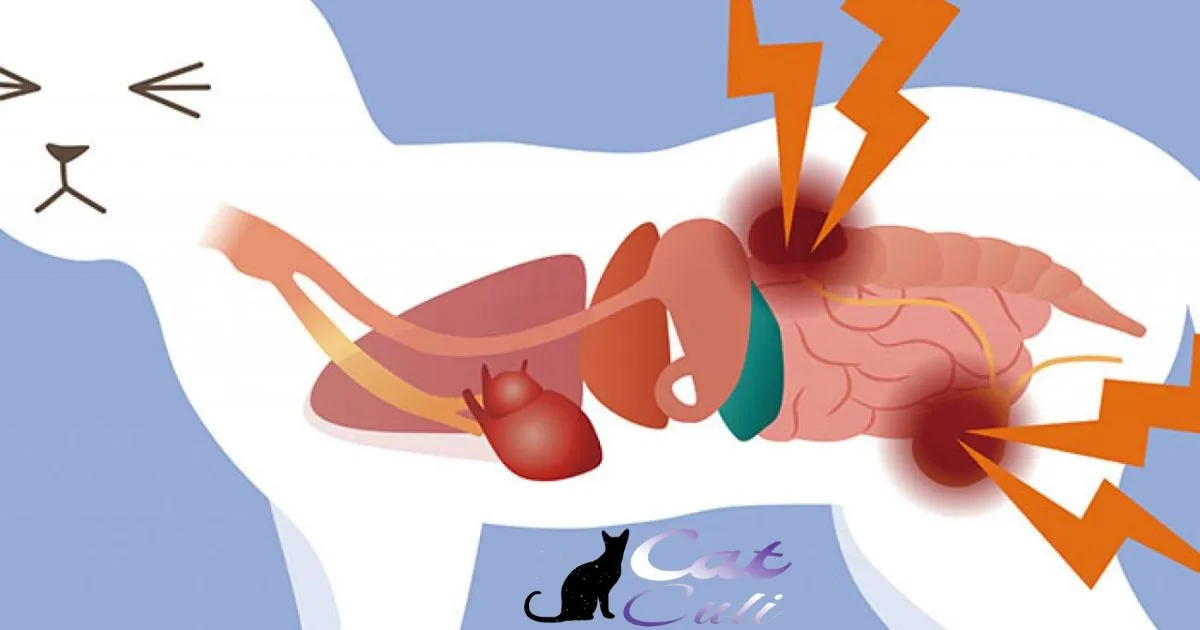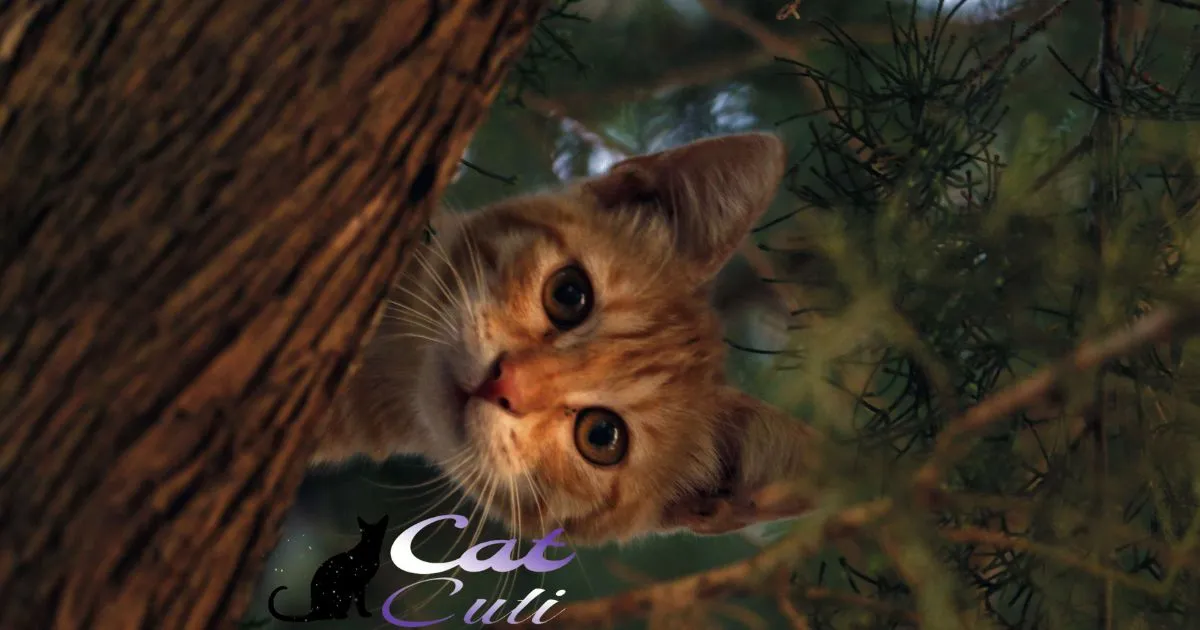Cypress trees can be toxic to cats. The needles, sap, and cones of these trees contain substances that can be harmful to felines if ingested. Ingesting these parts may cause gastrointestinal upset, vomiting, and lethargy in cats. It is essential to keep cats away from cypress trees to ensure their safety.
Ever wondered, Are Cypress Trees Toxic To Cats? It’s a question that deserves attention, as the answer may affect your furry companion’s well-being. Let’s delve into the potential hazards lurking in your backyard foliage and uncover the truth about the safety of cypress trees for your beloved cats.
Cypress trees can pose a risk to cats as their needles, sap, and cones contain substances that may be harmful if ingested. It’s essential to be aware of potential hazards and take precautions to ensure your cat’s well-being. Stay with us to explore more about this crucial topic and keep your furry companion safe and sound.
Cypress Trees And Feline Safety
Cypress trees can be risky for cats, as their needles, sap, and cones contain substances that might harm your feline friend if ingested. It’s crucial for cat owners to recognize these potential dangers and take proactive measures to ensure their pet’s safety.
Keeping cats away from cypress trees and choosing cat-friendly landscaping options helps prevent unintentional exposure to harmful elements, fostering a healthier environment for your furry companions.To safeguard your cat’s well-being, understanding the specific threats associated with cypress trees is essential.
Educating yourself about the potential risks allows you to create a secure outdoor space for your pets. By being aware of the dangers posed by cypress trees, cat owners can make informed decisions to maintain a cat-friendly environment, minimizing the likelihood of health issues stemming from exposure to harmful elements in these trees.
Hidden Dangers: Cats And Cypress
Cypress trees can be risky for cats, as their needles, sap, and cones contain substances that might harm your feline friend if ingested. It’s crucial for cat owners to recognize these potential dangers and take proactive measures to ensure their pet’s safety.
Keeping cats away from cypress trees and choosing cat-friendly landscaping options helps prevent unintentional exposure to harmful elements, fostering a healthier environment for your furry companions.To safeguard your cat’s well-being, understanding the specific threats associated with cypress trees is essential.
Educating yourself about the potential risks allows you to create a secure outdoor space for your pets. By being aware of the dangers posed by cypress trees, cat owners can make informed decisions to maintain a cat-friendly environment, minimizing the likelihood of health issues stemming from exposure to harmful elements in these trees.
Understanding Cypress Toxicity In Cats
Cypress trees can be harmful to cats due to certain substances found in their needles, sap, and cones. When cats ingest these parts, it may lead to digestive issues, vomiting, and lethargy.
Regularly inspect the surroundings for any fallen cypress debris, and promptly remove it to minimize the chances of accidental ingestion by curious cats. Being proactive in understanding and addressing cypress toxicity is essential for the health and safety of your beloved feline friends.
The Peril Of Cypress Consumption
Beware the dangers if your cat decides to nibble on a cypress tree! Cypress trees pose a risk to feline friends due to substances found in their needles, sap, and cones. Ingesting these parts can lead to digestive issues, vomiting, and lethargy in cats, making it crucial for pet owners to be aware of the potential peril associated with cypress consumption.
To keep your cat safe, create a cat-friendly environment by carefully selecting landscaping elements. Opt for non-toxic plants and, when in doubt, consult with your veterinarian to ensure your furry companion can explore your garden without encountering the peril of cypress consumption.
Guarding Cats From Tree Hazards
Cats face potential risks from certain trees, such as cypress. Cypress trees contain substances in their needles, sap, and cones that can harm cats if ingested. To protect your feline friends, it’s crucial to be aware of these hazards and take proactive measures to keep them away from these specific trees.
Creating a cat-friendly environment involves vigilant landscaping. Avoid planting cypress trees or any other potentially harmful flora in areas accessible to your cats. By understanding and actively addressing these risks, you can ensure a safer and healthier space for your beloved feline companions.
Unveiling Risks To Cat Health

Cypress trees pose potential risks to cat health, with their needles, sap, and cones containing substances that can be harmful if cats ingest them. These parts of the tree may lead to gastrointestinal upset, vomiting, and lethargy in felines.
It’s crucial for cat owners to be aware of these dangers and take preventive measures to ensure the well-being of their beloved pets.To safeguard your cat’s health, consider restricting their access to areas with cypress trees.
Regularly inspect your garden or surroundings for any fallen needles or cones, and promptly remove them. By staying vigilant and proactive, you can significantly reduce the risks associated with cypress trees and create a safer environment for your feline companion.
Navigating The Cypress Cat Conundrum
Concerns arise when considering the interaction between cats and cypress trees. These trees pose potential risks to feline health, as the needles, sap, and cones contain substances that could be harmful if ingested.
Cat owners must navigate this conundrum by staying informed about the specific dangers posed by cypress trees and taking proactive steps to protect their furry companions.To address the Cypress Cat Conundrum, it is crucial for cat owners to identify and eliminate potential hazards in their surroundings.
By actively managing the risks and making informed choices, cat owners can ensure a secure and enjoyable environment for their feline friends, minimizing the challenges associated with the presence of cypress trees in their homes or outdoor spaces.
Cat-Safe Landscaping: A Cypress Conundrum
Creating a cat-friendly garden becomes crucial when facing the Cypress conundrum. Cypress trees may pose risks to feline companions due to substances in their needles, sap, and cones. To ensure your cat’s well-being, consider alternatives in landscaping that prioritize safety over potential hazards.
Avoiding the Cypress conundrum involves simple steps. Opt for non-toxic plants and trees in your garden to eliminate potential dangers for your feline friends. Stay informed about the flora in your outdoor space to create a safe and enjoyable environment where your cats can explore without encountering harmful elements from Cypress trees.
Detecting Danger: Cypress And Cats
| Aspect | Information |
| Cypress Trees | Potential hazards due to needles, sap, and cones. |
| Feline Reactions | Ingestion may lead to gastrointestinal issues. |
| Symptoms | Vomiting, lethargy, and discomfort in cats. |
| Preventive Measures | Choose cat-safe landscaping with non-toxic plants. |
| Alternative Options | Consider safer trees to avoid Cypress-related risks. |
| Vet Consultation | Seek professional advice for any concerning symptoms. |
| Garden Safety | Ensure outdoor spaces prioritize cat well-being. |
| Awareness is Key | Stay informed about potential dangers in your garden. |
Safeguarding Feline Friends From Cypress
Keep your furry companions safe by understanding the potential risks associated with cypress trees. Cypress trees can be harmful to cats due to the substances in their needles, sap, and cones.
To ensure your feline friends’ well-being, take proactive measures such as keeping them away from these trees and maintaining a cat-friendly garden environment.Create a secure space for your cats by choosing cat-friendly plants and landscaping options.
Being aware of the hazards posed by cypress trees allows you to safeguard your feline friends and provide them with a healthy and safe outdoor environment. With a little attention to your garden choices, you can ensure that your cats enjoy their surroundings without encountering the dangers associated with cypress trees.
The Toxic Tango: Cats And Cypress
Cypress trees may pose risks to cats as their needles, sap, and cones contain substances that can harm feline health. When cats ingest these parts, it may lead to gastrointestinal upset, vomiting, and lethargy.
Cat owners must be aware of the potential dangers and take steps to keep their furry friends away from cypress trees.Creating a cat-friendly environment involves understanding the toxic tango between cats and cypress trees.
By staying informed about these hazards, pet owners can implement measures to ensure their cats’ safety, such as selecting non-toxic plants for their surroundings and keeping a watchful eye on outdoor areas where cypress trees may be present.
Cypress Caution For Your Cats
Concerned about your cats’ safety around cypress trees? Cypress caution is crucial, as these trees contain substances in their needles, sap, and cones that can harm your feline companions if ingested.
Be vigilant in keeping your cats away from these potential hazards to ensure their well-being and prevent any digestive issues or lethargy associated with cypress toxicity.To safeguard your furry friends, consider creating barriers or designated safe zones in your garden where cypress trees are absent.
Regularly monitor your outdoor space to ensure there’s no access to fallen cypress needles or other tree parts. With a proactive approach and awareness of the cypress caution for your cats, you can enjoy a beautiful garden while keeping your feline friends healthy and happy.
Feline Safety Check: Cypress Caution
Ensure your cat’s safety by understanding the potential risks associated with cypress trees. Cypress trees pose a threat to feline well-being due to the substances found in their needles, sap, and cones.
Keep a vigilant eye on your garden to prevent your cat from ingesting these harmful elements, and consider alternatives to cypress trees for a cat-friendly environment.In the
pursuit of feline safety, it’s crucial to conduct a thorough Cypress Caution.
Take proactive measures such as planting non-toxic flora and creating barriers to keep your curious cat away from cypress trees. By staying informed and implementing these precautions, you can create a secure space for your cat to explore without the worry of encountering potential hazards.
Diving Into Cypress Tree Concerns
Concerns arise when considering the impact of cypress trees on our feline companions. Cypress trees contain substances in their needles, sap, and cones that can be harmful if ingested by cats. These components may lead to gastrointestinal issues, vomiting, and lethargy in our beloved pets.
To ensure the well-being of our cats, it’s crucial to be aware of these potential hazards and take proactive measures to keep them away from cypress trees in our surroundings.As we delve into the concerns surrounding cypress trees and cats, it becomes evident that awareness is key to preventing potential health risks.
Cat owners should be vigilant in monitoring their pets around these trees, keeping a watchful eye on any signs of nibbling or ingestion. By staying informed and taking preventive actions, we can create a safer environment for our feline friends and mitigate the risks associated with cypress tree exposure.
Investigating Cypress Risks For Cats

Cypress trees may pose risks to cats, as various parts contain substances potentially harmful if ingested. Needles, sap, and cones of these trees can lead to gastrointestinal issues, vomiting, and lethargy in felines.
It’s crucial for cat owners to be aware of these potential dangers and take proactive measures to keep their furry companions safe from the hazards associated with cypress trees.To ensure feline safety, consider creating barriers or restricted zones around cypress trees in your surroundings.
Regularly inspect your garden for fallen needles or cones and promptly remove them. By staying vigilant and addressing potential risks, you can enjoy the beauty of cypress trees in your environment while safeguarding the well-being of your beloved cats.
Cat-Proofing Your Garden: Cypress Awareness
Keep your furry friends safe by understanding the potential risks of cypress trees in your garden. Cypress trees can be harmful to cats due to substances in their needles, sap, and cones.
Take proactive measures to create a cat-friendly environment by avoiding the planting of cypress trees and ensuring that your garden is free from these potential hazards.Awareness is key in cat-proofing your outdoor space.
Educate yourself about the dangers associated with cypress trees, and choose cat-safe plants for a worry-free garden. By staying informed and making mindful choices, you can provide a secure outdoor haven for your feline companions.
A Closer Look: Cypress Toxicity
Taking a closer look at Cypress Toxicity reveals potential dangers for our feline companions. Cypress trees can be harmful to cats due to substances found in their needles, sap, and cones. If cats ingest these parts, it may lead to gastrointestinal issues, vomiting, and lethargy.
Pet owners must be aware of these risks and take proactive measures to keep their cats safe, such as restricting access to areas with cypress trees.Understanding the specifics of Cypress Toxicity becomes crucial in creating a cat-friendly environment.
It involves recognizing that the threat lies not just in the towering trees but also in the smaller components like needles and cones. By staying informed and implementing preventive measures, cat owners can ensure a secure space for their furry friends, free from the potential harm associated with cypress trees.
FAQ’s
Is Cypress poisonous to pets?
Cypress can be toxic to pets. Needles, sap, and cones contain substances harmful if ingested, posing risks to their health.
Is Cyprus bad for cats?
Yes, cypress trees can be harmful to cats. Ingesting needles, sap, or cones may cause gastrointestinal issues and other health problems.
Are cypress trees poisonous?
Indeed, cypress trees are poisonous to pets. Various parts, including needles and sap, contain substances that can be harmful when ingested.
Are lemon cypress safe for cats?
Lemon cypress may not be safe for cats. Similar to other cypress varieties, it contains
substances that can be harmful if ingested by felines.
Conclusion
In conclusion, understanding the risks associated with cypress trees is crucial for responsible pet ownership. It’s clear that Are Cypress Trees Toxic To Cats is a valid concern, as various components such as needles, sap, and cones can pose significant health threats to feline friends.
By staying informed about the potential dangers and maintaining a cat-friendly space, owners can create a healthier and safer living environment for their beloved pets. Regular monitoring, quick intervention in case of exposure, and seeking veterinary advice are essential practices to ensure the well-being of cats around cypress trees.








